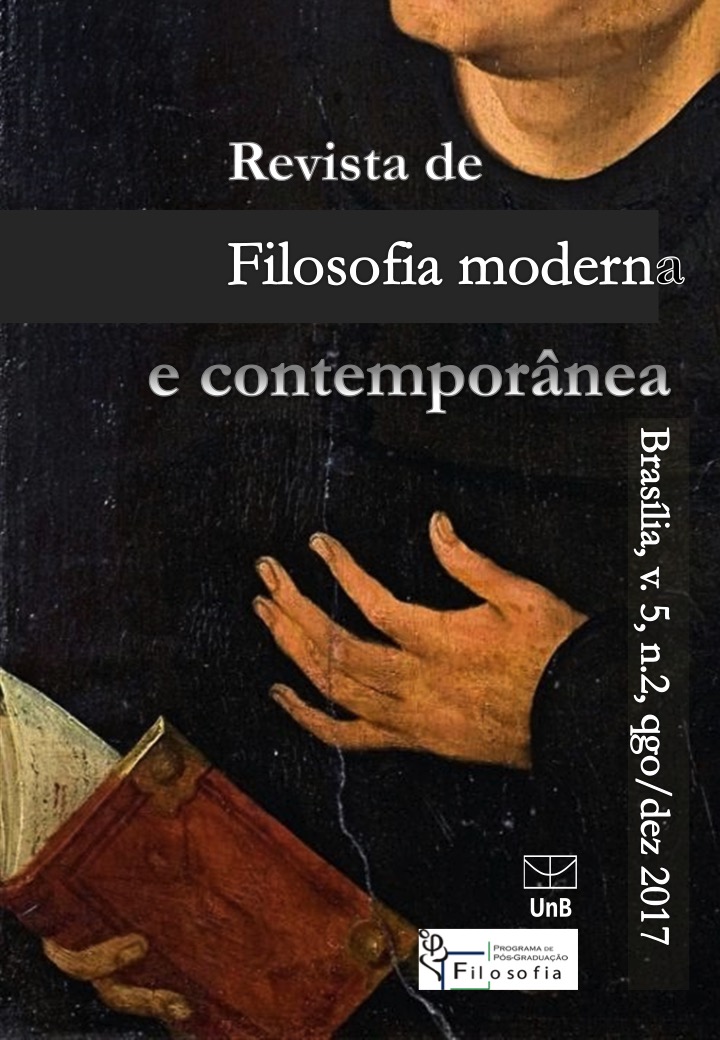The becoming of a virtual God: Kierkegaard in the post-theological horizon
DOI:
https://doi.org/10.26512/rfmc.v5i2.12600Keywords:
Possibility, Potency, Freedom, Absolute, Contingency, NoveltyAbstract
After centuries of theological subordination and subjective alienation, Modern Philosophy began to recover itself and set free the world from the crushing weight of the patriarchal God. It did so by two eminently modern elements, namely: absolute immanence and subjective freedom. The decisive turning point towards immanence is established by absolute Idealism and crystallized in the Hegelian philosophy of religion, whose discussion split the Hegelian School in right and left wing. Kierkegaard’s thinking emerges in the context of this post-Hegelian discussion and its position remains ambiguous between Hegel’s right and left. To Kierkegaardian subjectivity goes back the “religion without religion” of French post-structuralism, as well as the post-theological atheism of the new speculative turn. In this paper, I will try a brief reading on the way in which religious consciousness has progressed from the most abstract transcendence to the most radical immanence. In this process, Kierkegaard will be our guide and referent.
Downloads
Downloads
How to Cite
Issue
Section
License
Copyright for articles published in this journal is retained by the authors, with first publication rights granted to the journal. By virtue of their appearance in this open access journal, articles are free to use, with proper attribution, in educational and other non-commercial settings.


